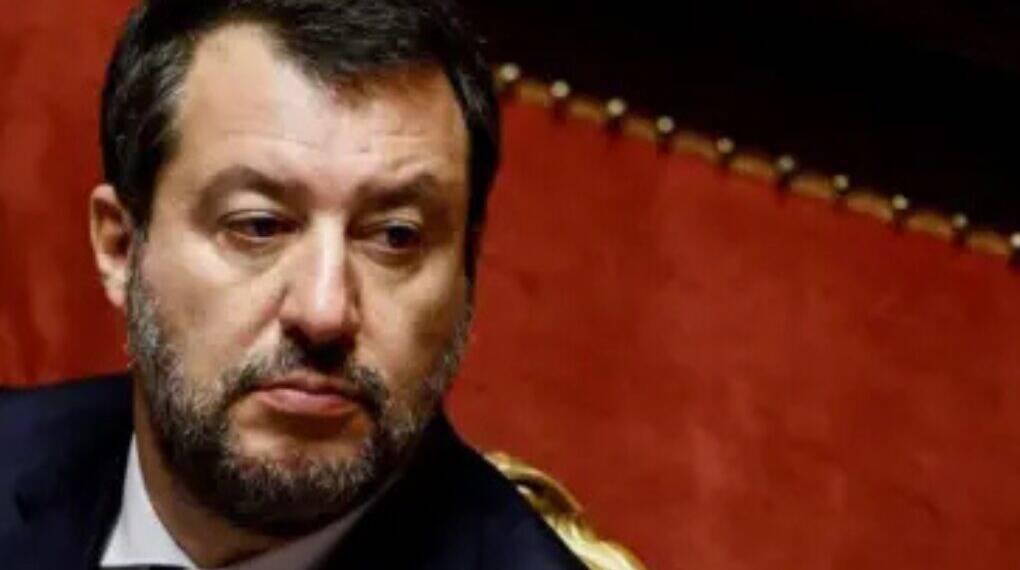In one of the bluntest rebukes yet from a senior European leader, Italy’s Deputy Prime Minister Matteo Salvini has warned that continuing to funnel billions in military and financial aid to Ukraine is not only failing to change the battlefield but is also feeding rampant corruption within the Ukrainian government.
His remarks, delivered Friday, have ignited fierce debate across Europe and signaled what many analysts say is a major shift in the continent’s political mood.
“It seems corruption scandals involving the Ukrainian government are surfacing, so I would not like the money of Italian workers and pensioners to be used to fuel new corruption,” Salvini said, referencing reports of fresh graft cases inside Kyiv’s defense establishment. “I don’t think sending more weapons will solve the problem. What has been happening in recent hours, with the advance of Russian troops, tells us that it is in everyone’s interest—first and foremost Ukraine’s—to stop the war.”
The right-wing League leader’s criticism comes at a time when European unity on Ukraine is visibly fraying, and as Russia makes new territorial gains that challenge the narrative of a resilient Ukrainian counterattack.
Russian Advances Add Weight to Salvini’s Warning
Salvini’s remarks were delivered just as independent battlefield assessments confirm that Russia has resumed momentum in several parts of eastern Ukraine.
According to monitoring groups, Russian forces have pushed deeper into the Pokrovsk direction, entering central Rodynske and raising flags over contested villages such as Novouspenivske. Poor weather has limited Ukraine’s drone reconnaissance capabilities, enabling Russian units to advance under fog and rain. Simultaneously, glide bomb raids and heavy artillery have forced Ukrainian troops to retreat from settlements including Uspenivka and Novomykolaivka.
Ukraine has attempted to strike back—launching rare FP-5 Flamingo cruise missiles at Russian energy facilities—but analysts warn that worsening weather could give Russia a tactical advantage as winter approaches.
For Salvini, these battlefield setbacks reinforce his message: Europe’s massive weapons transfers are not reversing Ukraine’s fortunes.
Europe’s Billions: Aid or a Black Hole?
Since the beginning of Russia’s full-scale invasion in 2022, the European Union has provided more than €100 billion in military, humanitarian, and financial aid to Ukraine. Italy alone has contributed €2.7 billion, including a recently approved 12th military aid package.
Salvini argues that this torrent of money is being misused.
His comments follow yet another corruption scandal in Kyiv, where senior officials are accused of siphoning off millions in defense procurement funds—money sourced from Western taxpayers. Reports indicate inflated prices for mortar shells, kickback schemes, and officials profiting off arms contracts, even as Ukrainian troops face shortages at the front.
“It seems Europe is finally waking up to see exactly who has been receiving its billions,” Salvini posted on X, tapping into a growing sentiment across the continent: fatigue, skepticism, and anger.
Polls reflect this trend. A recent ANSA survey shows 52% of Italians now oppose further military aid—a sharp rise from previous years. Multiple EU nations, from Poland to Slovakia to Hungary, are also voicing frustration over corruption, inflation, domestic pressures, and war fatigue.
Italy’s Internal Clash Over Ukraine
Salvini’s hardline stance has triggered swift backlash from within Italy’s own government. Defense Minister Guido Crosetto dismissed the Deputy PM’s claims, stating:
“We are trying to help civilians who are suffering 93% of Russian attacks. You cannot judge an entire country based on two corrupt individuals.”
Crosetto praised Zelenskyy’s anti-corruption efforts, insisting the Italian government would not abandon Ukraine.
But Salvini’s message resonates with working-class Italians who feel they are paying for a foreign war while dealing with high energy bills, stagnant wages, and an economic downturn. As European elections draw nearer, Salvini appears to be tapping into a potent voting bloc.
A Long History of Corruption in Kyiv
Ukraine has struggled with systemic corruption for decades. Transparency International ranks it 104th out of 180 nations—one of the worst records in Europe. While Zelenskyy has fired dozens of officials and passed new anti-corruption laws, scandals continue to erupt:
$40 million allegedly stolen in a 2024 arms procurement case
Defense officials inflated food and fuel prices for profit
Millions missing from infrastructure funds meant for reconstruction
Western auditors have repeatedly warned that up to 20% of aid is at risk of being misused.
Salvini argues that these are not isolated incidents, but symptoms of a broken system.
The Bigger Question: What Now?
As Russia advances and public skepticism grows, Salvini is urging Europe to shift course toward diplomacy rather than escalation.
He has called for:
Urgent ceasefire talks
freezing new arms shipments
financial audits of past aid
EU-wide accountability mechanisms
Critics say he is echoing Kremlin narratives. Supporters say he is speaking an uncomfortable truth that others are afraid to acknowledge.
What is undeniable is that the political climate in Europe is changing. The once-unified front behind Ukraine is weakening. Populist leaders are gaining ground. And a war that once seemed like a clear moral cause is increasingly seen through the lens of domestic pressures, corruption scandals, and military stalemates.
A Turning Point for Europe?
Salvini’s comments may be a sign of something larger—Europe’s slow but unmistakable shift away from unconditional support for Kyiv. Whether his warnings will lead to policy changes or remain political rhetoric is unclear. But as corruption probes widen and Russian forces inch forward, the questions he raises are no longer fringe.
They are now part of Europe’s mainstream debate.
And the continent must soon decide:
Is it prepared to keep funding a war without demanding accountability?
Or has the time come to admit that the strategy isn’t working—and that the bill is coming due?








